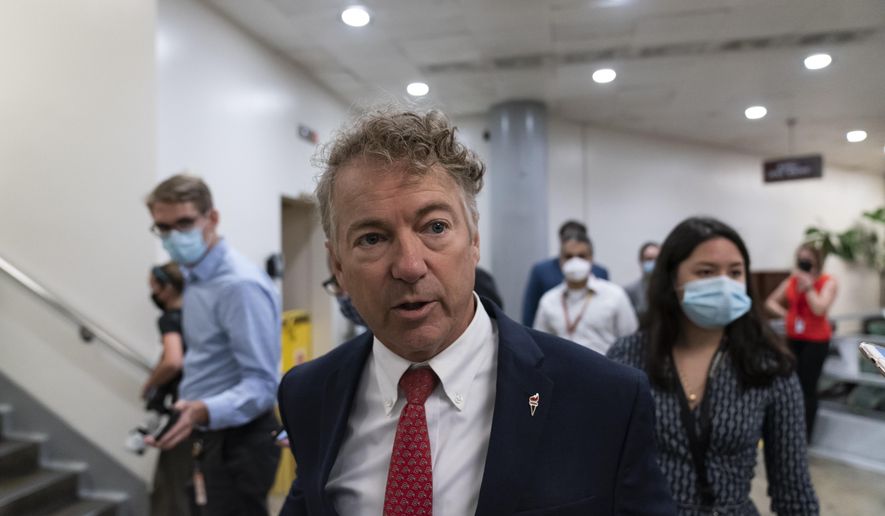Sen. Rand Paul said Monday he will stop using Big Tech platforms and is ditching Google-owned YouTube first over concerns about censorship of speech online.
“Today, I begin my exodus from Big Tech, starting with the worst censor of all, YouTube,” the Kentucky Republican said in a statement. “As a libertarian-leaning senator, I think private companies have the right to ban me if they want to, however, those of us who believe that truth comes from disputation and that the marketplace of ideas is a prerequisite for innovation should shun the close-minded censors and take our ideas elsewhere, which is exactly what I’m doing.”
Mr. Paul’s office said he would make exceptions only for publishing videos to YouTube in order to criticize the video-based platform or to direct people to Rumble, a competitor of YouTube.
Tech platforms’ rules and enforcement practices have ensnared several prominent politicians and conservative firebrands. In recent days, Twitter banned a personal account for Rep. Marjorie Taylor Greene, Georgia Republican, and Judicial Watch President Tom Fitton said he suffered a similar ban at the hands of TikTok, the popular video-based platform with a China-based owner.
Ms. Greene announced Monday that Facebook had also suspended her and published an image to Gettr showing that Facebook was preventing her from posting or commenting for 24 hours. Facebook said it was not eliminating her account.
Politicians and public figures are not the only ones in the companies’ crosshairs. For example, YouTube previously has suspended the conservative One America News Network over allegations that it violated the platform’s COVID-19 misinformation policy.
Tech companies have a wide variety of tools to censor and shape content on their platforms. These include such things as banning people, removing content and making individuals’ posts and videos reach far smaller audiences than they otherwise would.
Aggressive crackdowns against public figures have created a flashpoint on the political right that gained momentum when several platforms booted former President Donald Trump in 2021 while he was in office.
YouTube barred Mr. Paul from posting videos for a week in August because the company said the senator violated its misinformation policies regarding the effectiveness of masks in stopping COVID-19. Mr. Paul responded by calling the YouTube ban a “badge of honor” on Twitter and sharing the banned video on Rumble.
Mr. Paul’s scrap with YouTube led to his decision to publicize his split with the video platform on Monday.
“Over the last year, YouTube has continued to wage its dangerous, anti-progress of science war against free speech, choosing to act in lockstep with government and ban videos posted by Dr. Paul that dared to contradict the government’s position,” the senator’s said office in a statement. “These videos included conversations with journalists where he discussed the efficacy of masks, particularly cloth masks, and a video explaining the science behind why cloth masks don’t work.”
YouTube did not immediately respond to a request for comment.
Mr. Paul also announced he was creating a news aggregation website called libertytree.com, where he published a post saying his goal is to “eventually quit Big Tech entirely.”
Mr. Paul is not alone among politicians looking to create new venues to share information. Mr. Trump has announced that he is developing a new social platform, TRUTH Social, under the auspices of the Trump Media & Technology Group. Rep. Devin Nunes, California Republican, is set to take charge of the platform as CEO this year.
• Ryan Lovelace can be reached at rlovelace@washingtontimes.com.




Please read our comment policy before commenting.